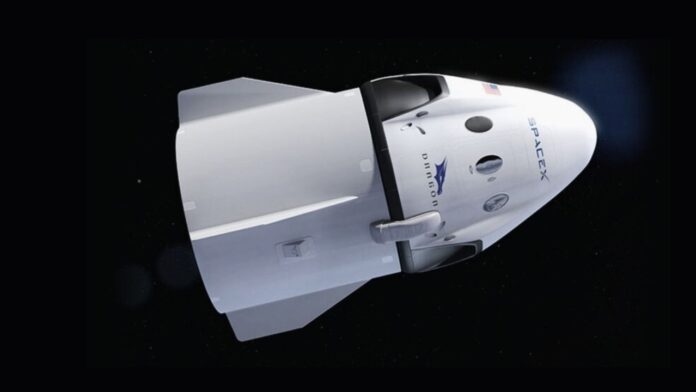SpaceX Rocket “Psyche” Prepares for Highly Ambitious Six-Year Journey to Metal Asteroid That Could Unlock Secrets of Our Solar System’s Origins
Outer Space Exploration Forges Ahead Despite Rising Global Tensions
Even as a pall of danger and uncertainty hangs over much of the world due to numerous wars and conflicts, the epic voyage of discovery across our solar system continues unabated.
NASA and SpaceX remain firmly fixed on their monumental mission to launch the Falcon Heavy rocket “Psyche” within the next few days on an intrepid six-year journey to a mammoth, metallic asteroid located in the void between Mars and Jupiter.
This ambitious celestial mission represents a major milestone for space exploration and humanity’s quest to unravel the mysteries surrounding the birth of our solar system and planetary formation.In addition, you can also read an article on- SpaceX 4 Astronauts Safely Splash Down in Florida, Ending Record-Breaking Mission
Long, Arduous Journey Ahead For “Psyche” Spacecraft
If liftoff proceeds as scheduled this week, the cutting-edge SpaceX rocket will embark on an odyssey of approximately 1.5 billion miles to reach its target – the giant asteroid Psyche. This mind-boggling distance is roughly the equivalent of traveling from Earth to the Sun five times over.
Due to the vast distance, the high-tech spacecraft will not arrive at the enigmatic space rock until 2029, meaning the brave voyage will last six long years in total.
Once Psyche finally nears its destination six years from now, it will spend two full years in orbit around the asteroid, diligently gathering images and critical scientific data to beam back to researchers eagerly awaiting a closer look at this unique celestial body.Additionally, you can also read about- Falcon 9 Mission: SpaceX Launches Rocket Packed With Starlink Satellites
Asteroid Psyche Unlike Any Other Explored in Our Solar System
What makes this particular asteroid so fascinating for scientists is its distinctly metal composition. Unlike most asteroids that are dominated by rocky or icy material, Psyche is believed to be comprised of 30% to 60% metal, with the remainder possibly consisting of silicate rock.
This has led researchers to theorize that Psyche is actually the exposed core of what was once a developing protoplanet in the early days of our solar system’s formation over 4 billion years ago.
In essence, it offers a rare window into the metallic core of a planet similar to Earth’s, which scientists could never examine directly. This has opened up intriguing possibilities for what Psyche’s exploration could reveal about how terrestrial planets like our own came into being.
“We can’t just go to the core of any planet. We can’t dig down deep enough. But we can go to Psyche because in a very real sense that asteroid is a planetary core,” said Dr. Lindy Elkins-Tanton, the mission’s lead investigator from Arizona State University.If you want you can also read- Project Kuiper: Amazon Launches First Internet Satellite Prototypes
Mission Could Unlock Evolutionary Origins of Earth and Other Planets
Given that Earth and other terrestrial worlds share a similar metallic core to Psyche, astronomers hope this mission will lead to revelatory insights about how the cores of planets formed and evolved over time, which remains a mystery.
By directly analyzing the composition and features of Psyche’s exposed core, scientists aim to construct models of how cores condense, collapse and differentiate to create the diverse planets seen in our celestial neighborhood.
Ultimately, this could completely reshape our fundamental grasp about the earliest days, if not hours, of our solar system’s history. It may help fill in the blanks regarding how the swirling matter that coalesced into our sun and planets transformed over eons into the established system we know today.
The implications of what we stand to learn about our own planet’s geological and evolutionary origins alone are staggering to contemplate. This mission could very well rewrite the proverbial history books on how terrestrial bodies like Earth came to support life.
You May Find Interest: NASA Mission to Metal World Could Help Us Find New Resources for Space Exploration
Exciting Mission Not Without Controversy
As with many of SpaceX’s ambitious missions led by founder Elon Musk, this thrilling attempt to uncover space’s deepest secrets hasn’t been without some controversy. The rocket’s projected cost, timing and feasibility have faced questions from critics.
Nonetheless, the tantalizing opportunity to elucidate the formative steps of planetary creation by analyzing a relic protoplanet core like Psyche remains a scientific opportunity too promising to pass up. Researchers are confident that any initial obstacles will be worked out, allowing humanity to uncover our cosmos’ greatest mysteries.Additionally, you can also read about- The Future of Rocket Fuel: Greener, More Efficient, and More Powerful
If Psyche fulfills its epic six-year trek as intended, we may finally pierce the veil on our planetary origins. And perhaps gain crucial perspective on humanity’s humble place in the universe as mere passengers on a tiny rock within an unimaginably vast expanse.




![Ranking US States: From Healthiest to Least Healthy [2024 Guide] Health Rankings US States](https://articleify.com/wp-content/uploads/2024/03/Health-Rankings-US-States-218x150.jpg)









![Technical Aspects of 844 Area Code in 2024 [Detail Guide] 844 Area Code](https://articleify.com/wp-content/uploads/2024/01/844-Area-Code-150x150.jpg)














